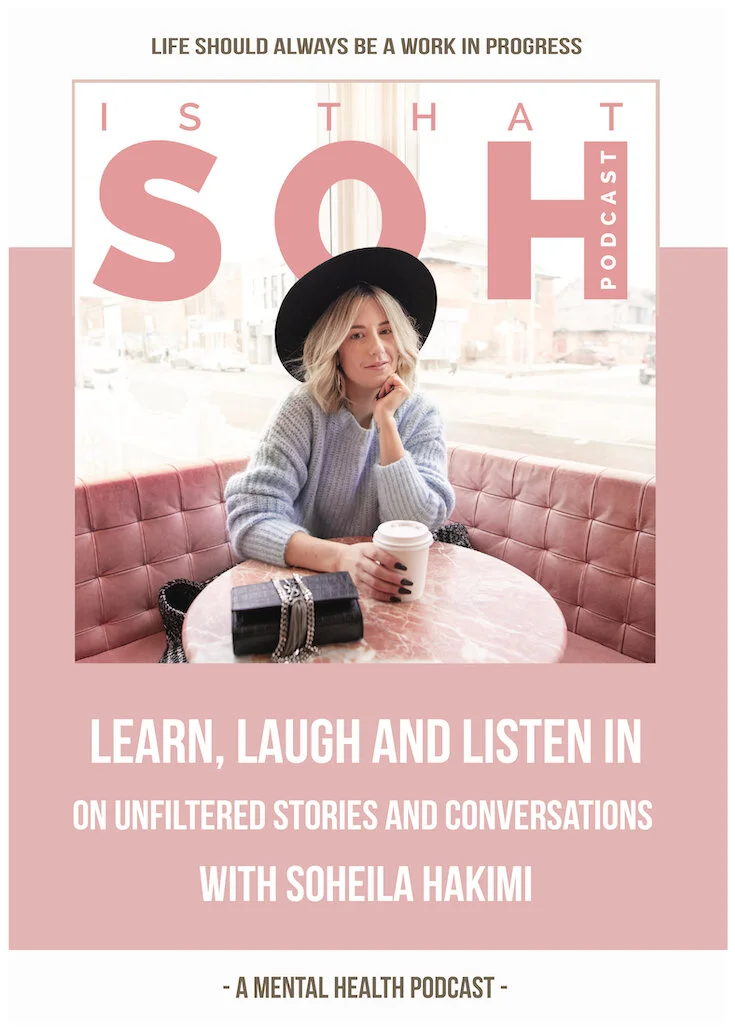EPISODE 28 : HOW TO TRANSFORM PTSD INTO POST TRAUMATIC GROWTH WITH JEN CUI
* Please Note - Some links in this post may be affiliate links *
Hello Friends and welcome back to the Is That Soh Podcast!
Today on the podcast I have invited holistic health coach and certified personal trainer Jen Cui to come on the show and teach us how we can transform PTSD into Post Traumatic Growth
For over 6 years, Jen suffered from depression, anxiety, suicidal ideation, disordered eating, and post-traumatic stress. After traditional medicine and therapies failed to treat her symptoms, Jen made the pivotal choice to embark on a self-healing journey to strengthen her mental health and build a positive relationship with her body. Now, she is thriving in her wellness and helping others do the same.
As the founder of Jen Cui Health, Jen’s mission is to empower people to live a healthy lifestyle that is authentic to them. She has helped hundreds of women and men reclaim their lives and bodies through invigorating live workouts as well as her signature “Find Your Freedom” mindfulness-based 12-week coaching program.
Today on the podcast we are going to be talking about Neuro-Linguistic Programming, psychology Martin Seligman’s 3 P’s to setback recovery, and Psychologist Carol Dweck’s 4 Q’s to effectively respond to challenging situations or emotions.
To learn more about Jen’s #My2021 Self-Care Pledge & 6-week Challenge (take the pledge to prioritize your wellness this year and have a chance to win a coaching session with me) - CLICK HERE
To join one of Jen’s Live Weekday Workouts, visit jencui.com/workshops
I hope you enjoy this episode as much as I did! Feel free to leave your thought below!
Also, special thanks to Mattias Friberg for composing the music for this podcast and perfecting my sound!
- ADDITIONAL RESOURCES -
The Things you Can See Only When You Slow Down is a bestselling mindfulness guide by Haemin Sunim (which means “spontaneous wisdom”), a renowned Buddhist meditation teacher born in Korea and educated in the United States, illuminates a path to inner peace and balance amid the overwhelming demands of everyday life.
When it was first published, Intuitive Eating was revolutionary in its anti-dieting approach. The authors, both prominent health professionals in the field of nutrition and eating disorders, urge readers to embrace the goal of developing body positivity and reconnecting with one’s internal wisdom about eating―to unlearn everything they were taught about calorie-counting and other aspects of diet culture and to learn about the harm of weight stigma.
In The Four Agreements, bestselling author don Miguel Ruiz reveals the source of self-limiting beliefs that rob us of joy and create needless suffering. Based on ancient Toltec wisdom, The Four Agreements offer a powerful code of conduct that can rapidly transform our lives to a new experience of freedom, true happiness, and love.
In this beautiful follow-up to his international bestseller The Things You Can See Only When You Slow Down, Zen Buddhist monk Haemin Sunim turns his trademark wisdom to the art of self-care, arguing that only by accepting yourself--and the flaws that make you who you are--can you have compassionate and fulfilling relationships with your partner, your family, and your friends. With more than thirty-five full-color illustrations, Love For Imperfect Things will appeal to both your eyes and your heart, and help you learn to love yourself, your life, and everyone in it.
Trauma is a fact of life. Veterans and their families deal with the painful aftermath of combat; one in five Americans have been molested; one in four grew up with alcoholics; one in three couples have engaged in physical violence. Dr. Bessel van der Kolk, one of the world’s foremost experts on trauma, has spent over three decades working with survivors. In The Body Keeps the Score, he uses recent scientific advances to show how trauma literally reshapes both body and brain, compromising sufferers’ capacities for pleasure, engagement, self-control, and trust. He explores innovative treatments—from neurofeedback and meditation to sports, drama, and yoga—that offer new paths to recovery by activating the brain’s natural neuroplasticity. Based on Dr. van der Kolk’s own research and that of other leading specialists, The Body Keeps the Score exposes the tremendous power of our relationships both to hurt and to heal—and offers new hope for reclaiming lives.
- Where To Find Jen Online -
INSTAGRAM ▶ @JenCuiHealth
WEBSITE ▶ www.jencuihealth.com
FACEBOOK ▶ JenCuiHealth
Follow The @IsThatSohPodcast On Instagram!
If you have any comments or questions about this episode, feel free to leave them below





























































